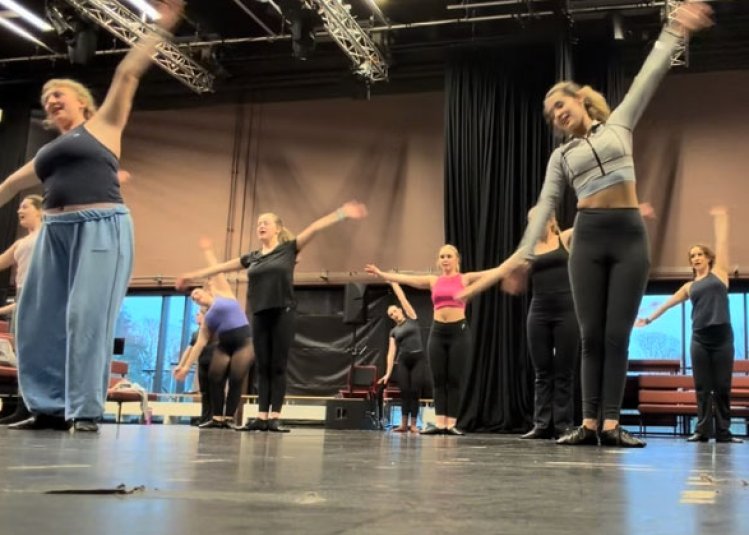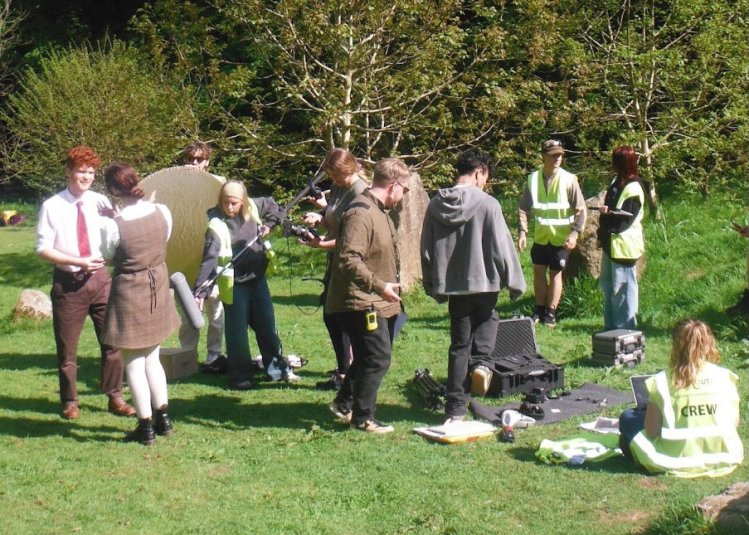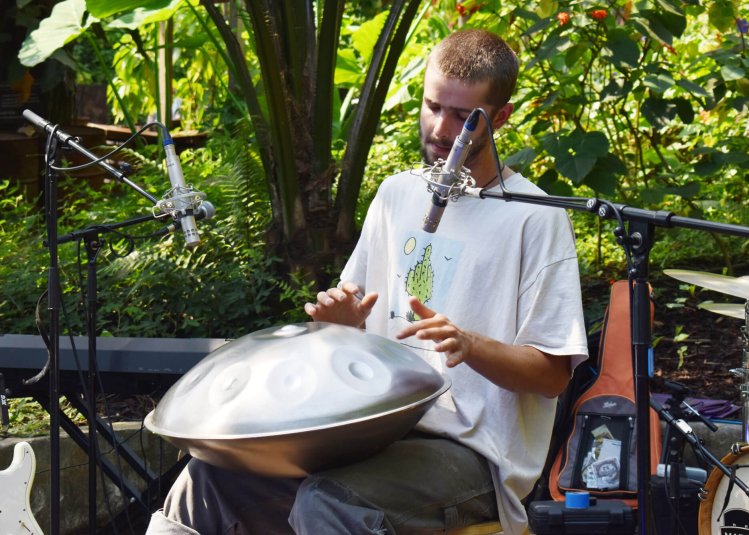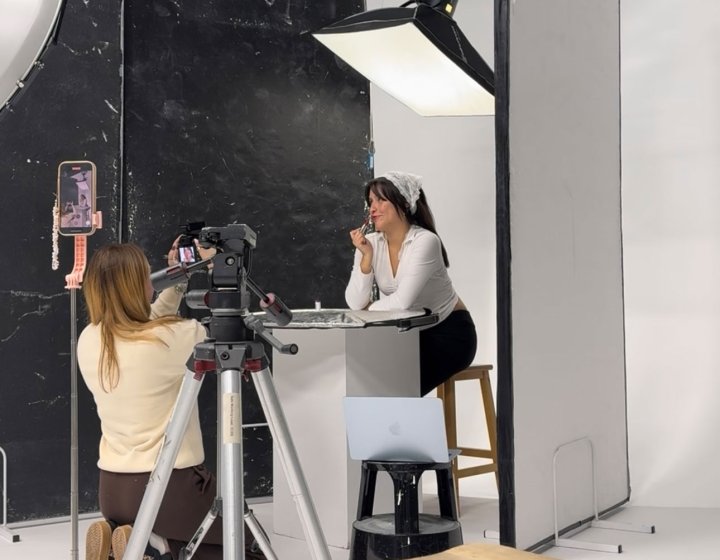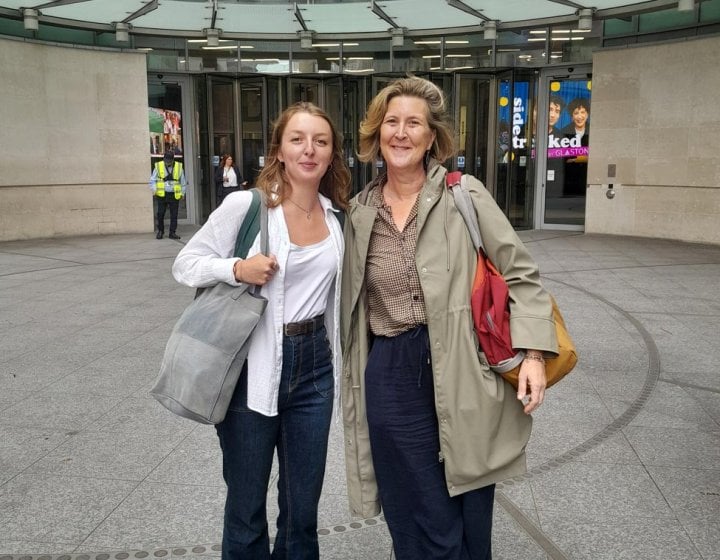My reflections on the Plug into the Metaverse conference
05 April 2023
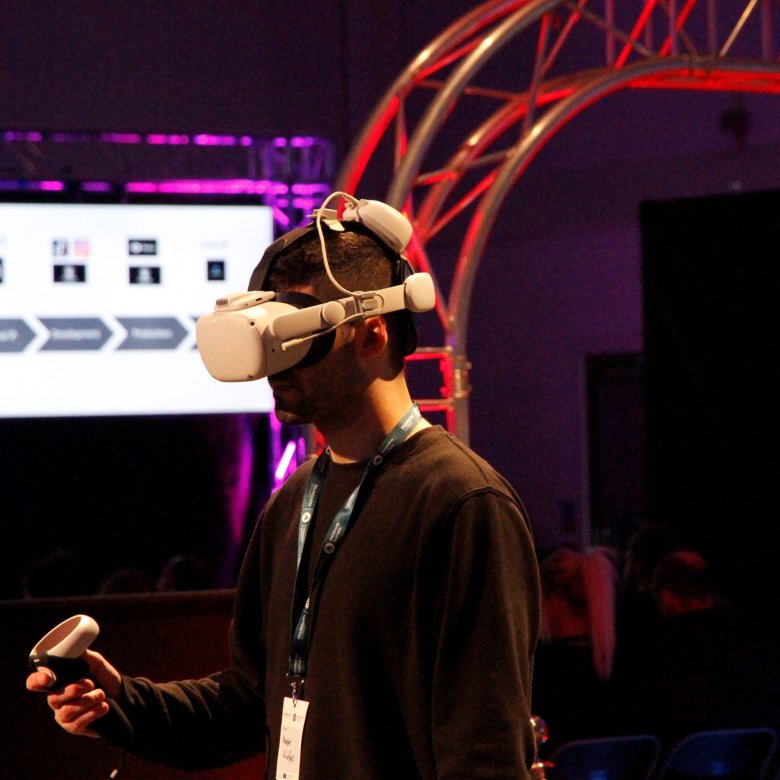
This piece was written by Business & Entrepreneurship BSc(Hons) student Joe Johnson about his experience at Immersive Business' Plug into the Metaverse conference.
Exploring the potential of VR, AR and the metaverse
Keeping up with the metaverse
With all this immersive and advancing technology, could we here in the southwest be doing more to capitalise on these emerging fields of VR, AR and the metaverse? – I felt this was what the Plug into the Metaverse conference was trying to answer. Also, given the unique position Falmouth has as a university, the use of VR in particular could be incredibly useful in subjects like art, illustration and graphic design, whilst aiding collaboration between fashion and textiles, product design, engineering and architecture (for example).
It’s no longer an elective choice to create digital solutions, the market is already expecting it. Simulation is now a part of the design process - being able to create, convey and amend an idea with practically no boundaries and all without the use of any materials is a pretty a compelling use of this tech. However, I still felt sceptical about the role VR would have in the future of education.
Bridging the fear-gap
COVID highlighted just how vital social interaction, real world experiences and human connection were, not to mention the devastating effect of isolation. This is not to say that there is not a place for it VR, on the contrary, if this tech is adopted and integrated in the right way, it has the potential to serve as an unparalleled tool.
I think when many hear the word ‘metaverse’, they envisage fleets of humans sat in a room docked into VR headsets, plugged into an alternate reality and withdrawing from the real world. This is largely due to the marketing that surrounds VR, admittedly it’s difficult to do for an immersive technology and a uniquely personal experience, but it does serve to hinder growth in the sector, particularly around public perception.
It became apparent to me after a handful of conversations that there are a number of students, and probably staff too, who slightly fear this technology and the idea that some of our skills may be obsolescent. I still feel there is a lot of work to be done in simply bridging this fear-gap before any conversation around implementation can be had.
Using technology for good
Another key take away was that every stage of the process must consider environmental impact and every decision wheel needs to include sustainability. The impact of mass data storage, outdated hardware (electronic waste) and the use of AI and cloud services, do and will continue have a monstrous impact on the environment.
From my own research and conversations with some of the speakers and delegates at the conference, it’s clear that this technology is allowing the opportunity for things we have struggled to comprehend to become visible. Surgeons can overlay the external parts of the body and see within. Investigations into cancers and life-threatening illnesses have simulations that will contribute to preventative treatment pathways. A medical student, for example, could experience the circulatory system as a red blood cell flowing through the entire body.
There were also examples of VR being used for collaboration, communication and empathy; with one speaker teaching his entire class in the metaverse, where all student avatars were in wheelchairs. They spent the entire day experiencing life (virtually) as a wheelchair user and all the challenges and obstacles they face on a daily basis. Their insights and experience were profound with many saying it had changed the way they would now perceive things permanently. There were also many who found speaking up in a classroom setting very challenging but being able to express themselves as their chosen avatar gave them more confidence to do so.
Education and the metaverse
This is all very new and exciting but how does this fit in with education and with those of us currently in academia? One point made by a panel member was that by the time people leave university, often their skills/training are redundant due to the release of new/updated platforms and user technology. There were some suggesting teaching and learning could be carried out in the metaverse, some saying the tech should just enhance the learning experience and others saying perhaps it should be a blend of both. I would tend to agree with the latter.
Mainly I came away still uncertain as to whether this is even what people wanted, will the job market demand that graduates leaving university and schools are prepared for the understanding of data, of technology and of platform progression? There are further conversations to be had around ethics, physical and psychology impacts, cyber security and privacy, infrastructure cost, to name a mere few, so this doesn’t even touch the surface. I think this will begin to define itself as the metaverse is more widely adopted but it’s important that we meet this tech head on and decide how it can serve us best rather than it deciding for us.
Another seemingly obvious yet vital point made by Gary Burnett was that of connection. During COVID the government was suddenly made acutely aware that reliable internet was not given across the UK. He advised his students to connect from home where possible and things were still often not plain sailing. Until this is first sorted, we cannot assume that everyone has access to this type of learning from a level playing field.
What other attendees had to say about the Plug into the Metaverse conference
“What I took from the event was just because we can doesn’t mean we should. I feel immersive tech and to some degree the metaverse can be used as an adjunct tool to aid in collaboration and the streamlining of interdisciplinary subjects, but I also feel there are a handful of forced markets that exist in a bubble that will eventually burst.” – Joe
“The event really broadened my knowledge of the metaverse and immersive technology, I learnt so much, such as how immersive tech is used in different career paths, and it was interesting to hear different panellists and speakers give their own personal take on the metaverse and where it’ll take us in the future.” – Leah
“I believe the event expanded my knowledge of what I thought the metaverse was and broadened my perspective of immersive technology as a whole.” – Sophia
“The conference was a really interesting and insightful event that provided me with a much greater understanding of immersive technology and AI and a different perspective on how it could be implemented in education and different areas of society. It was interesting to hear contrasting views and people being challenged on important considerations such as sustainability and ethics of the technology." – Greg
“What I took away from the event was the amount of potential immersive business has in the working world. Its strong ability to educate multiple subjects whilst being immersed in the scenery, as you can be transported to a place you cannot go. This allows concentration to be much more effective. VAR also has a broad potential of helping the climate crisis and reducing the output of fast fashion, for example.” – Sam
